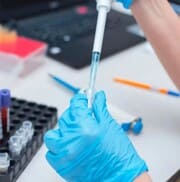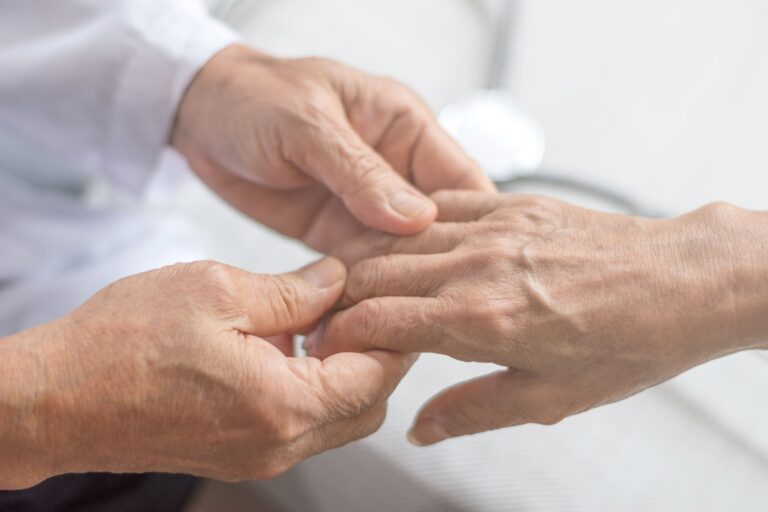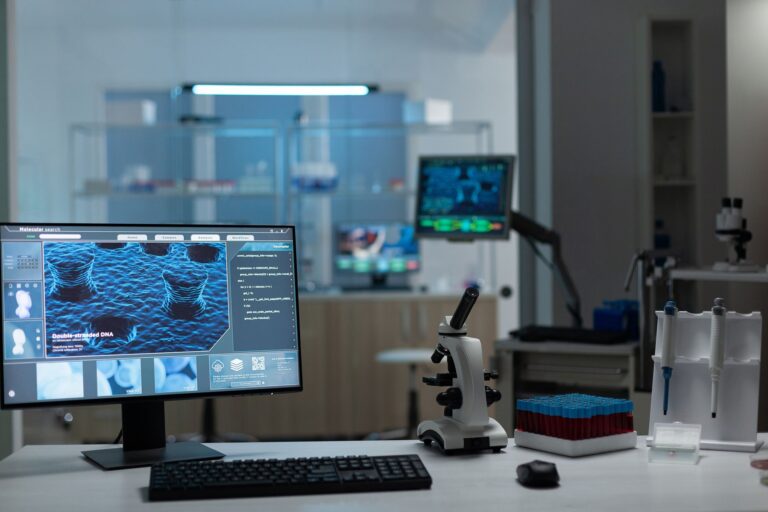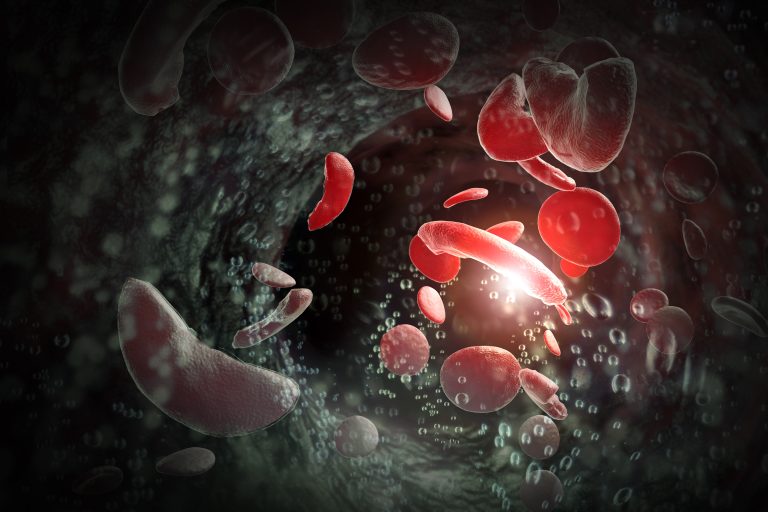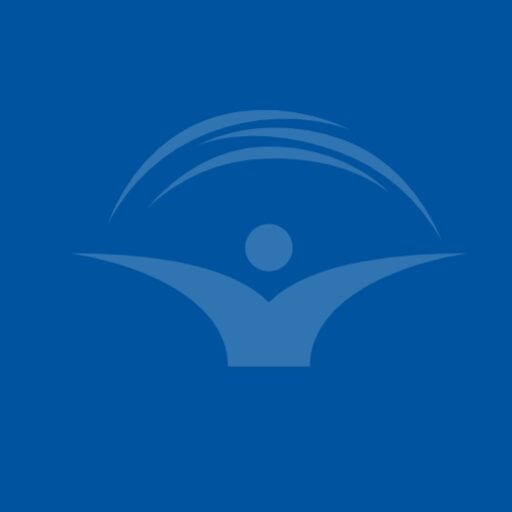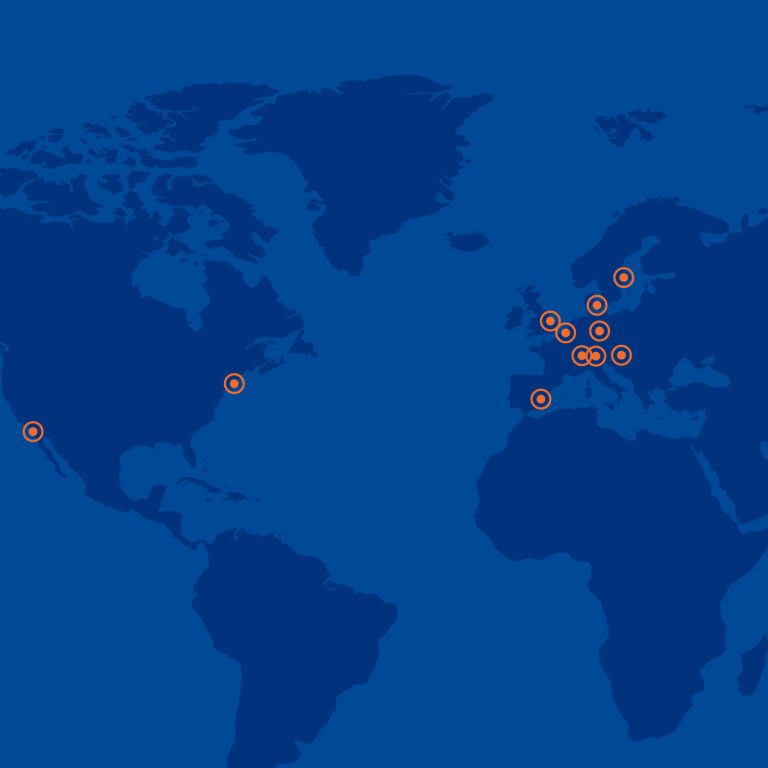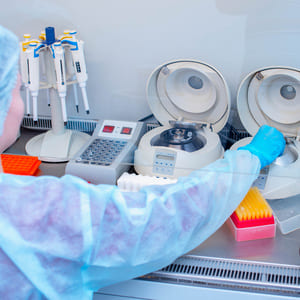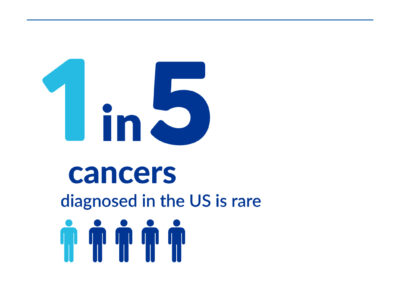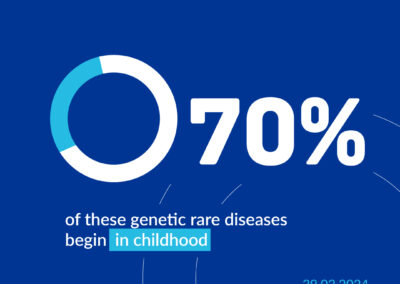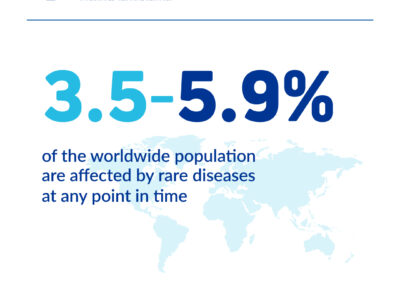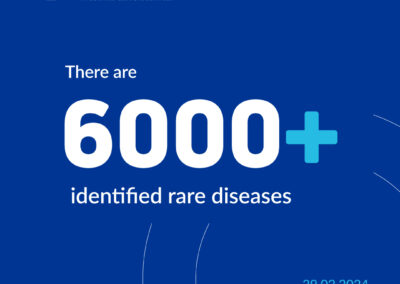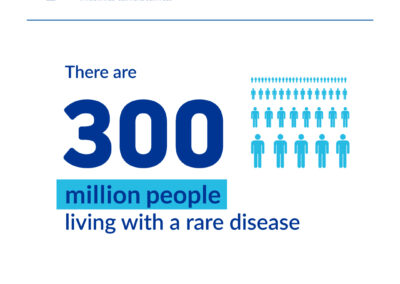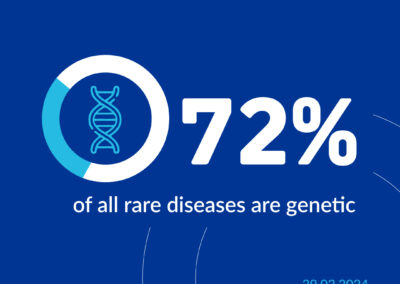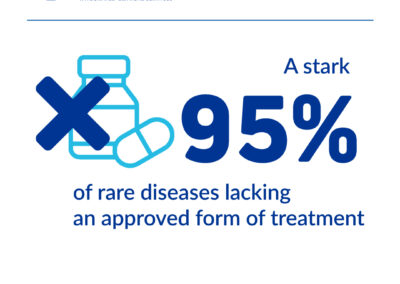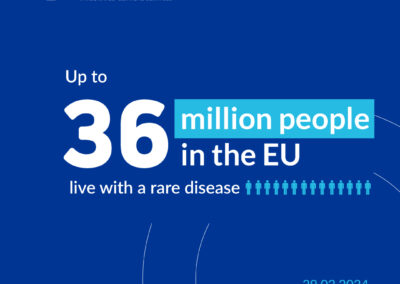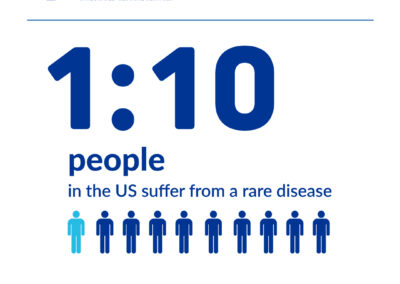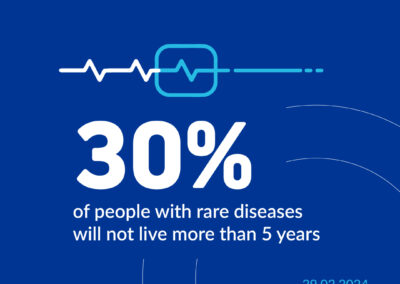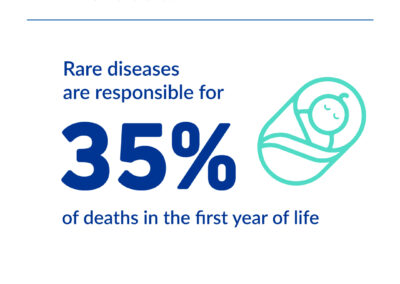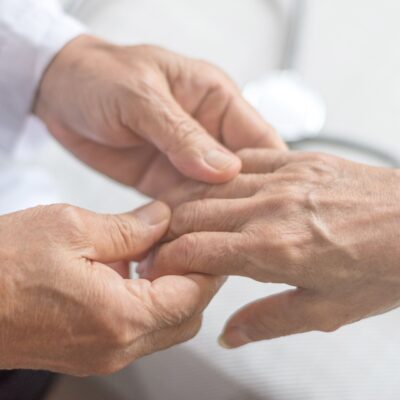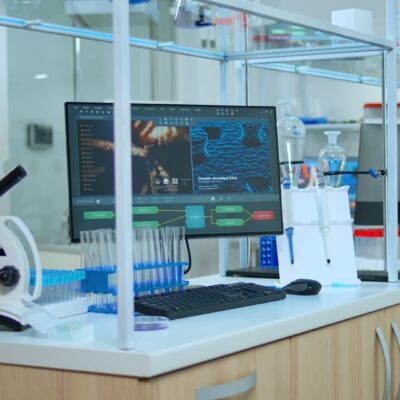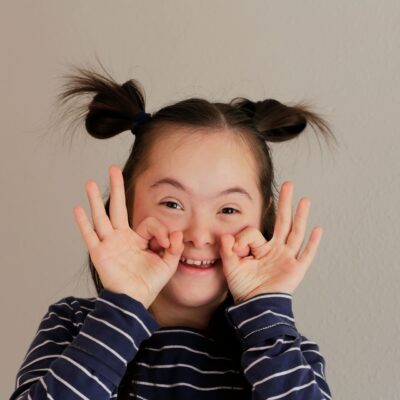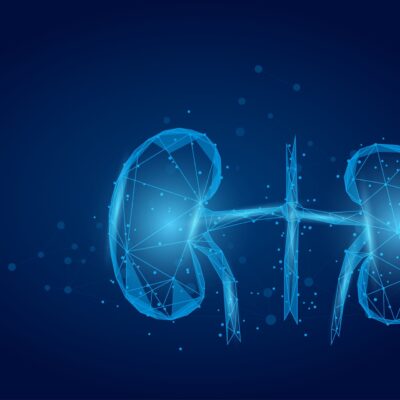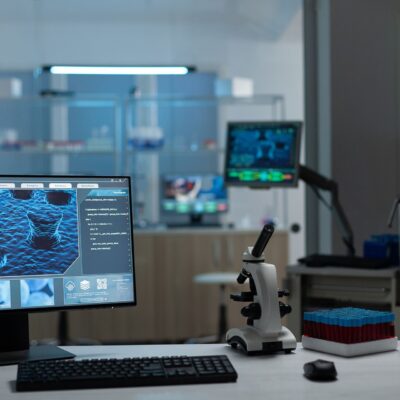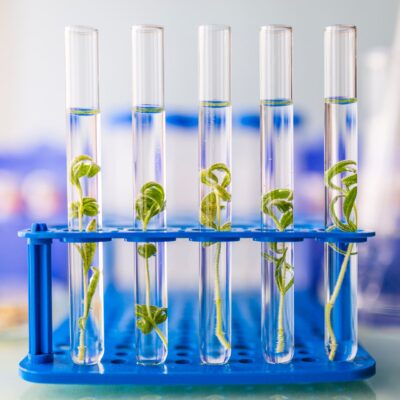Every year, the last day of February marks a significant occasion for the millions affected by less known medical conditions – we celebrate Rare Disease Day. However, the term 'rare disease’ often escapes the everyday health conversation, overshadowing the significant challenges faced by patients and their families. With the aim to shed light on the importance of this day and the bravery of those affected, let’s delve into what rare disease truly entail and how Rare Disease Day seeks to change the narrative.
Understanding what is Rare Disease?
Rare disease might be infrequent, but their impact is far-reaching and profound. Despite only affecting a fraction – typically fewer than 1 in 2,000 individuals in Europe these disease collectively touch the lives of millions across the globe. With over 6,000 known rare disease, they present a labyrinth of symptoms and disorders, often leaving patients in a diagnostic odyssey while healthcare professionals grapple with treatment challenges. The rarity and complexity of these conditions mean they require increased attention, which is precisely why Rare Disease Day is so important.
The main points of what represents a rare disease include:
- A scarce condition typically affecting a small percentage of people.
- The collective presence of over 6,000 different rare disease affecting millions.
- The diversity of disorders and symptoms posing a challenge in diagnosis and treatment.
While each rare disease affects few, their aggregate presence exerts a significant burden on patients, healthcare systems, and society at large, necessitating a comprehensive understanding and concerted efforts to address this medical paradox.
On average, the report found, it takes more than six years and nearly 17 doctor visits, hospitalizations, and other health-related trips, to receive a rare disease diagnosis after symptoms begin. // Read the source article.
Rare is not rare – key statistics about Rare Disease
Discussing rare disease in figures can be a stark reminder of their prevalence and the urgency needed in addressing them. Around 7,000 rare diseases are manifesting in an estimated 300 million people worldwide. The statistical significance of these conditions points to a much larger story — one in which approximately 1 in 17 people will be affected at some point in their lives.
Enriched with this knowledge, we’re reminded of the crucial role that Rare Disease Day plays in calling for much-needed research and support. / Sources for presented statistics data: ojrd.biomedcentral.com / rarediseaseday.org / health.ec.europa.eu / raregenomics.org
The significance of Rare Disease Day
Once a year, on the final day of February, the global community gathers for Rare Disease Day. This day isn’t just a date but an occasion to raise awareness about conditions often overlooked. It’s a chance to start conversations, bring together different voices, and lead a movement to enhance the lives of those affected by rare disease.
The day focuses on:
- Raising awareness about rare disease through annual observance.
- Uniting individuals and organizations across the globe in advocacy and support.
- Pressing for advancements in research and development for new treatments.
- Organizing activities ranging from educational campaigns to community events.
- Highlighting the necessity of international cooperation in tackling rare disease.
Each reason weaves into the tapestry of Rare Disease Day’s ultimate mission: to create a world where patients face fewer obstacles in their journey towards health and well-being.
How can you involve in Rare Disease Day?
Engage through social media
One of the easiest yet effective ways to get involved in Rare Disease Day is through leveraging the power of social media. Platforms such as Twitter, Facebook, and Instagram are excellent for raising awareness. You can use designated hashtags like #RareDiseaseDay or #ShowYourRare to connect with a global audience. Consider sharing personal stories, informational graphics, and updates about events happening around the world. By engaging with these platforms, you contribute to a larger conversation and help in amplifying the key messages associated with Rare Disease Day.
Participate in local events or online webinars
Various organizations often host events or webinars on Rare Disease Day to educate people and share experiences. Attending these can deepen your understanding of rare disease and how they impact individuals and families. If there are no events in your area, look for online webinars or virtual meetups that you can join from the comfort of your own home.
Volunteer your time
Many patient organisations and advocacy groups are on the lookout for volunteers to help organise Rare Disease Day events or ongoing support programmes. Assisting with coordination, outreach, or even offering professional expertise can be invaluable. If you have a knack for organising, graphic design, writing, or any other skill, reach out to these groups and offer your talents.
Educate yourself and others
Understanding the challenges faced by those living with a rare disease is crucial for advocacy. Take the initiative to educate yourself about different rare disease. Read articles, watch documentaries, and listen to podcasts that discuss the medical, social, and psychological aspects. Then, share this knowledge with others to spread awareness. Knowledge is power, and spreading it is a potent tool for change.
Support those affected
Simply offering emotional support to those affected can make a significant difference. Reach out to families within your community that are dealing with rare disease. Offering to assist with daily tasks, providing a listening ear, or just being present can be a great comfort to those who often feel isolated by their rare condition.
Rare Disease Day is more than just a day of awareness. It’s a call to action for everyone to lend their support in any way they can.
Medicover Integrated Clinical Services: spearheading Rare Disease expertise
When it comes to navigating the intricate landscape of rare disease, Medicover Integrated Clinical Services emerges as a beacon of specialized support. We offer tailored clinical development and commercialization capabilities for rare and orphan disease.
In the realm of Precision Medicine & Companion Diagnostics, our services are aimed at supporting your rare and orphan disease drug development initiatives. We offer assistance in biomarker discovery, target validation, and patient stratification through sequencing services, among others. Our swift turnaround time guarantees the delivery of accurate and dependable information promptly. Tailored solutions are provided at each stage of your development program, ensuring a balance between cost and benefits to suit your specific requirements.
Within Central Lab Services at Medicover Integrated Clinical Services, we are dedicated to advancing healthcare, particularly in the domain of rare disease and orphan drug development. Recognizing the unique challenges inherent in rare diseases, we have carefully designed a customized approach that integrates state-of-the-art diagnostics with comprehensive testing protocols. Our proficient team, armed with advanced technologies, ensures precision and reliability in every analysis conducted. By providing a solid groundwork for orphan drug development, we not only contribute to pioneering therapies but also uphold the highest standards of quality and efficiency, solidifying our reputation as a dependable ally in driving progress for patients with distinctive medical conditions.
Key aspects of Medicover Integrated Clinical Services offerings include:
- Tailored support in managing rare disease clinical trials bolstered by extensive therapeutic expertise.
- A team of professionals well-versed in the complexities of rare disease.
- A patient-first strategy to ensure that individual needs are recognized and catered to.
- Cutting-edge solutions to expedite the development of new, effective therapies.
- A sound commitment to collaboration with various stakeholders to enhance awareness and improve patient outcomes.
We are committed to advancing healthcare by providing cutting-edge solutions, individualized patient care, and fostering collaboration to drive progress in the field of rare disease and orphan drug development. Our unwavering dedication to improving patient outcomes underscores our position as a trusted partner for those navigating the complexities of clinical trials within rare disease.
A united front in the fight against rare disease
Rare Disease Day stands as a testament to the resilience of those affected by rare disease and their communities. It’s a rallying point that unites patients, families, researchers, and policymakers, emphasizing the inherent value of every individual’s health. As we mark Rare Disease Day, let us commit to continued awareness, understanding, and action, moving closer to a world where rare is no longer synonymous with overlooked.
